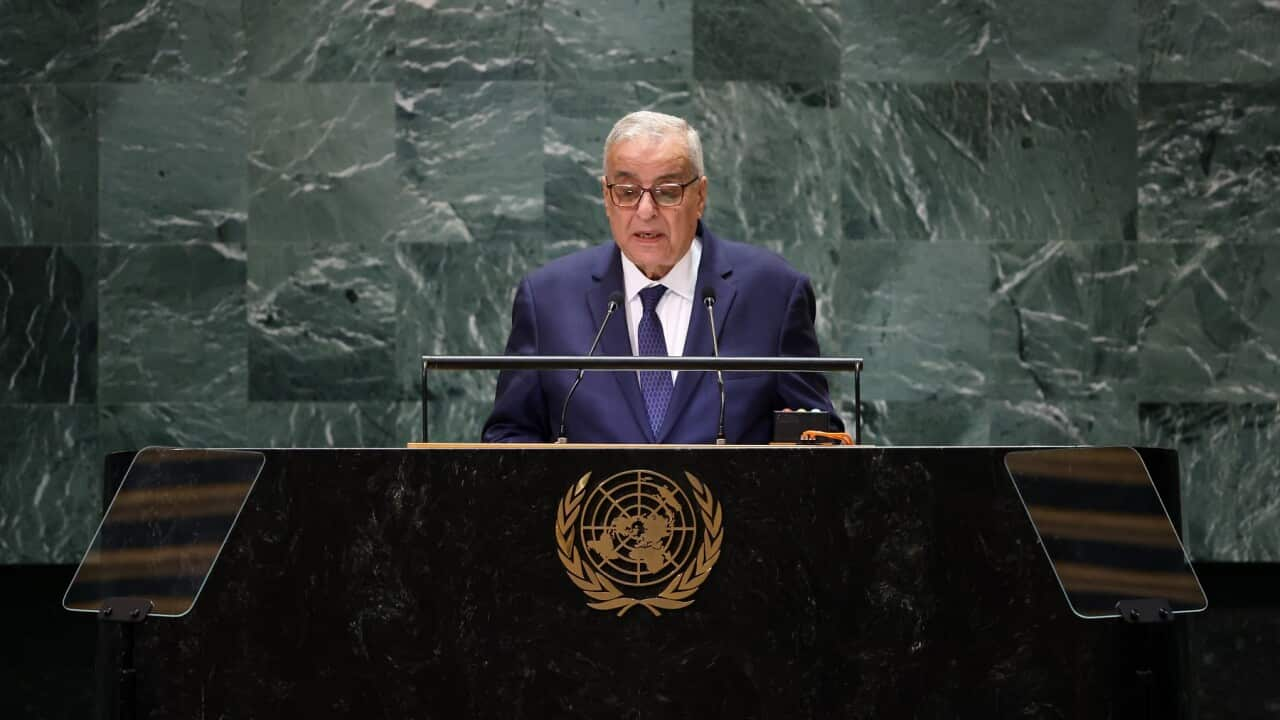TRANSCRIPT
Israel has persistently refused a ceasefire in Lebanon amid worsening conflicts in the region.
It comes as world leaders including those of the United States, Australia and 10 other allies push for a 21- day temporary truce following an escalation in violence that has killed nearly 700 people since Monday.
But Israeli Prime Minister Benjamin Netanyahu has reiterated that Israel will continue to strike Hezbollah until all of its objectives are fully achieved.
"My policy, our policy is clear, we are continuing to hit Hezbollah with full force and we will not stop until we achieve all our goals, first and foremost returning the residents of the north safely to their homes."
Hundreds have been killed in Lebanon, and thousands displaced since Israel launched its strikes on Hezbollah.
Israeli air bombardments of the region have intensified over the past few days, killing over 620 people, raising fears of an all-out war between Israel and Hezbollah.
The Lebanese health ministry reports that Israeli air strikes have killed 92 people and wounded 153 others over the past 24 hours alone.
The Lebanese government estimates the number of people displaced by violence across the country has now likely surpassed 250,000.
Lebanon's foreign affairs minister, Abdallah Bouhabib, warns that the country is in the midst of a crisis that has the potential to destroy it completely.
"Lebanon is currently experiencing a crisis that threatens its existence and the future of its people, and its well-being and prosperity, and requires urgent international intervention before things get out of control, and the interconnected dominoes fall, and the inability to contain and disarm them turns into a black hole that swallows regional and international peace and security. The critical situation in Lebanon portends the worst for the entire Middle East if things continue as they are and the world stands by watching. "
Israel maintains that it is only targeting Hezbollah infrastructure and launch sites, but many civilians are among casualties in this week's strikes.
Western leaders, including Prime minister Anthony Albanese are urging Israel to reconsider the ceasefire proposal to allow for diplomatic discussions and to end the fighting with Hezbollah.
It comes as the Australian government like many others have continued to urge its citizens in Lebanon to leave immediately, as Israel has indicated a ground invasion may be coming soon.
Mr Albanese says the world is concerned about the ongoing crisis, its escalation and the impending consequences.
"Australia supports the call by the United States and other like minded countries for an immediate ceasefire in both Israel to Lebanon, across those borders, as well as an immediate ceasefire in Gaza. We want to see an end to this conflict. I say to Prime Minister Netanyahu that he needs to listen to the international community just like the other players in that region, need to listen to the international community. The calls are very clear."
On another front, at least 14 people have been killed in an Israeli strike on a school sheltering thousands of displaced Palestinians in northern Gaza on Thursday.
The Israeli military confirmed the strike, in the Jabalia refugee camp, but claims it was aimed at Hamas militants hiding there.
Gaza health authorities say over 41,400 Palestinians have been killed since the conflict with Hamas began almost a year ago, following the group's attack on Israeli towns on October 7, which left 1,200 dead and around 250 hostages taken.
Rami Abdul-nabi, is a displaced Gazan who lives at the school and had relatives killed in the strike.
"I live in this school with my family and other families. This should be a place for sanctuary, a place for the displaced to find a sanctuary, people who have no options left, people who can't find a home for shelter. As you can see, the school was safe and there were people selling items here and we were shocked to see two rockets strike the school and shake us like an earthquake, it was a shocking massacre where body parts were everywhere."
Australian Foreign Minister Penny Wong, has called for urgent international action, emphasizing that a two-state solution is necessary to end the ongoing violence.
Ms Wong says the international community can no longer wait for individual parties to agree on a ceasefire in Gaza and Lebanon.
"War has rules. Even when confronting terrorists. Even when defending borders. Civilians need to be protected. But in conflicts around the world, this is not happening... President, the world demands a ceasefire in Gaza. The international community – including the Security Council - must work together to pave a path to lasting peace...We cannot wait for the parties to do this themselves; we cannot allow any party to obstruct the prospect of peace."
The proposal for a temporary ceasefire in Lebanon indicated that Israel was willing to get on board, but Mr. Netanyahu's position appeared to change after he reportedly faced backlash from his coalition government.
United States Secretary of Defence Lloyd Austin says the U-S remains optimistic a deal can be reached.
"Israel and Lebanon can choose a different path. Despite the sharp escalation in recent days, a diplomatic solution is still viable, a diplomatic solution, not a military solution, is the only way to ensure that displaced civilians on both sides of the border can finally go back home."













